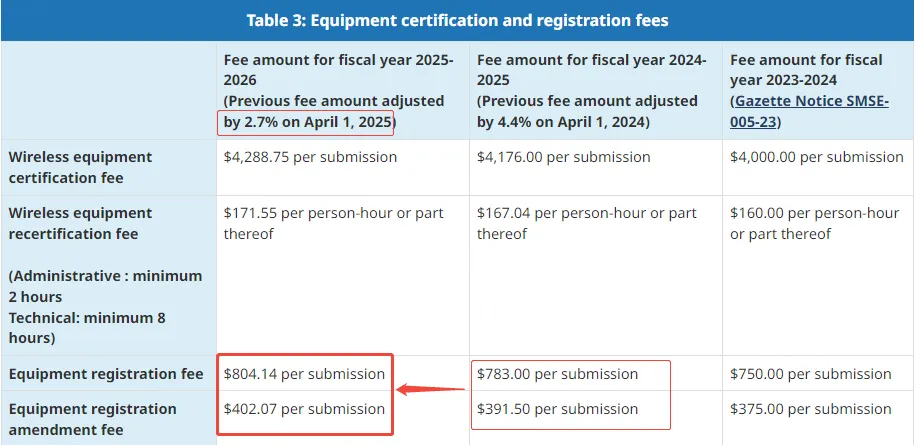
UL Certification for Electronic Products
UL certification is a widely recognized safety certification mark in the United States and North America. For many products, it is a necessary condition to enter the U.S. market. Products without UL certification may have difficulty being sold in the U.S. market. Therefore, obtaining UL certification helps companies smoothly enter and expand their market share in the U.S. This article will provide a detailed introduction to the scope of products covered by UL certification, standard requirements, etc., for reference.

UL Standards and Scope
UL standards are a series of safety standards developed and published by Underwriters Laboratories (UL) in the United States. UL standards are widely recognized and adopted, and many countries and regions consider UL certification an important requirement for product safety and market access. In the U.S. market, many electronic products and electrical appliances need to pass UL certification before being sold and used.
UL standards cover a wide range of fields, including electronic products, electrical appliances, building materials, industrial equipment, consumer goods, etc. They address electrical safety performance, as well as mechanical performance, chemical properties, environmental requirements, and more, with the goal of assessing the safety, reliability, and compliance of products.
UL Electrical Safety Standards
UL has numerous electrical safety standards covering various electrical products and devices.
Below are some UL electrical safety standards and their relevant content:
1. UL 60335 Series: These are safety standards for household and similar use appliances. For example, UL 60335-1 is a general safety requirement, while other parts address specific types of products, such as UL 60335-2-3 for irons, UL 60335-2-8 for electric shavers and clippers, etc.
2. ul 62368-1: This standard applies to safety for audio-video, information technology, and communication devices, covering computer peripherals, hubs, speakers, headphones, adapters, and more.
3. UL 2089: This standard is for the safety of vehicle battery chargers, applicable to car chargers or products with car charger heads.
4. ul 1310: This standard covers safety for power devices, such as battery chargers.
5. ul 2743: This standard is for portable power devices, including jump starters, emergency power supplies, and energy storage devices.
Below are some UL electrical safety test items:
1. Electrical Insulation: Evaluates the electrical insulation performance of products to ensure that they do not pose an electrical shock hazard during normal or abnormal use.
2. Dielectric Strength Test: Conducts high voltage tests on products to verify the strength and stability of their electrical insulation.
3. Grounding Protection: Assesses the product's grounding protection to ensure that electrical currents are safely directed to the ground in cases of leakage or other abnormalities, preventing electrical shock hazards.
4. Overload Protection: Evaluates the product’s protection mechanisms in cases of overload, preventing fire hazards or damage to the device caused by excessive current.
5. Short-Circuit Protection: Assesses the product's protective measures during a short circuit to ensure that power is promptly cut off to avoid fire hazards.
6. Leakage Protection: Evaluates the product's leakage protection features to ensure power is cut off in case of leakage, preventing electric shock hazards.
These are just part of the UL electrical safety standards. In fact, UL has more standards for other electrical products and devices. Each standard specifies the safety requirements and test methods for the relevant product to ensure electrical safety performance.
UL Standards for Flammability
UL has developed some testing standards related to the flammability of items to ensure that products do not easily catch fire or spread flames under normal or abnormal conditions. Below are brief explanations and examples of these standards:
1. UL 94 – Flammability testing for plastic materials used in devices and electrical components: As mentioned earlier, UL 94 is the most commonly used standard for assessing the flammability of plastic materials. It defines various flammability grades (e.g., V-0, V-1, V-2, HB, 5VA, 5VB, etc.), each corresponding to specific burning test conditions and requirements.
2. UL 746A – Short-Term Properties Evaluation of Polymer Materials: Although not directly related to flammability, this standard provides performance data for polymer materials (including plastics) under short-term thermal exposure and mechanical stress, which may be related to the material's flammability.
3. UL 1693 – Flammability testing for non-metallic materials used in electrical and electronic devices: This standard may cover a broader range of non-metallic materials, including those other than plastics, for assessing their flammability in electrical and electronic devices.
4. UL 2043 – Flame Propagation Testing for Thermoplastic Pipe and Fittings Used in Ventilation Systems: This standard specifically assesses the flame propagation characteristics of thermoplastic pipes and fittings used in ventilation systems.
5. UL 1975 – Flame Retardancy Testing for Wire and Cable Assemblies: This standard defines flame-retardancy testing methods for wire and cable assemblies to ensure that these components will not rapidly burn or spread flames when exposed to fire.
6. UL 1995 – Thermal Durability and Flammability Testing for Non-Metallic Materials Used in Heating and Ventilating Equipment: This standard focuses on assessing the thermal durability and flammability of non-metallic materials used in heating and ventilating equipment.
These standards are critical to ensuring the safety of products during use, especially in environments with high fire risks. Manufacturers typically design and test their products based on these standards to ensure compliance with safety regulations and requirements.
UL Performance Standards
1. UL S8001 – Flashlight Performance: This standard likely involves testing key performance indicators of flashlights, such as light output, beam distance, run time, battery life, etc. These tests help consumers select the most suitable flashlight for their needs based on its performance in different use scenarios.
2. UL 316 – Video Surveillance System Performance Standards: UL 316 likely covers testing of video surveillance systems' image quality, resolution, color accuracy, video storage and playback performance, etc. These tests help ensure that video surveillance systems provide clear, reliable images for security monitoring.
3. UL 2596 – Testing Methods for Thermal and Mechanical Properties of Battery Enclosure Materials: This standard likely focuses on evaluating the thermal stability and mechanical strength of battery enclosure materials under extreme temperature conditions. These tests assess the battery's safety in different working environments and prevent safety incidents caused by thermal runaway or mechanical damage.
4. UL 2802 – Camera Image Quality Performance testing: UL 2802 likely involves evaluating the image quality of digital cameras or camcorders, including resolution, color accuracy, contrast, dynamic range, and other key metrics. These tests help consumers compare different camera products and choose the best one for their needs.
Amazon’s UL-Compliant Product List
Key Component Control Requirements:
UL Lithium Battery Product Testing Standards
UL has developed a series of testing standards for lithium battery products. Below are some key standards:
1. UL 1642: This is a standard for the safety of lithium cells introduced by UL in 1985. It applies to both primary (non-rechargeable) and secondary (rechargeable) lithium cells and is an authoritative standard for evaluating the safety and reliability of lithium cells under various failure conditions. The main tests for UL 1642 include room temperature short-circuit tests, 55-degree short-circuit tests, overcharge tests, extrusion tests, heavy impact tests, mechanical shock tests, vibration tests, thermal chamber tests, temperature shock tests, altitude simulation tests, ejection tests, and more.
2. ul 2054: This standard primarily applies to lithium battery packs or lithium battery assemblies. It applies to single-use and rechargeable batteries in products, where one or more lithium-ion batteries chemically convert chemical energy into electrical energy.
UL 1642 and UL 2054 are two important standards developed by UL for lithium battery products. They cover the safety and performance evaluation of individual batteries and small rechargeable battery packs, respectively. UL 1642 focuses on the safety tests of individual lithium cells, including short-circuit, overcharge, extrusion, heavy impact, and other tests to ensure safe and reliable operation under failure conditions. This standard is crucial for evaluating the basic safety of lithium batteries. UL 2054 applies to small rechargeable battery packs, covering design, construction, and performance testing. Notably, each battery in a battery pack must pass UL 1642 certification, ensuring that all components of the battery pack meet basic safety standards. While UL 2054 is not a mandatory test for products shipped to the U.S., it is often a requirement for batteries used in electronic products sold in the U.S.
3. UL 2595: This standard specifies requirements for key components, including lithium-ion cells meeting UL 62133 or CAN/CSA E62133. It also involves battery-driven devices, such as those with detachable, integrated, and separable battery packs, with a maximum rated voltage of 75V DC.
Additionally, although not developed by UL, UN38.3 is an internationally recognized standard for the safe transport of lithium batteries. It requires that lithium batteries undergo high-simulation, thermal tests, vibration, impact, 55℃ external short-circuit tests, overcharge tests, forced discharge tests, and more to ensure their safety during transportation.
ul testing Options
UL provides two main testing services: Listing and Recognition. These services have different applications and requirements in the testing and certification process.
1. Listing: The Listing service is a comprehensive testing and certification service offered by UL. When a product passes the Listing service, it means the product has been thoroughly tested according to UL standards, and its manufacturing process also complies with UL requirements.
a. Listed products usually display the UL mark to indicate that they have passed UL testing and certification and meet relevant safety standards.
b. For battery products, passing the UL Listing service ensures that the battery
pack or individual lithium cell meets UL requirements, and the device as a whole complies with the relevant safety standards. c. The Listing service requires manufacturers to follow strict quality control processes during production to ensure product safety. d. UL conducts regular factory inspections and audits to ensure that manufacturers continue to meet UL’s strict quality control and product safety requirements.
2. Recognition: The Recognition service is typically used for specific components or subassemblies, such as battery packs, circuit boards, and connectors. a. Recognized products are typically not directly marked with the UL mark but instead display a UL Recognition symbol. b. Products with the UL Recognition symbol indicate that UL has reviewed and certified their safety performance to some extent, but they may still need further testing or certification to be used in a final consumer product. c. Products that have passed UL Recognition may still need to be evaluated by UL or other certifying bodies before being used in certain applications.
III. Other UL Tests and Certifications Apart from the electrical safety tests and battery safety tests mentioned above, UL also provides other certifications related to environmental protection, such as:
REACH Testing
weee compliance These certifications are designed to evaluate a product's environmental impact and ensure that it meets regulatory requirements related to hazardous substances, recycling, and environmental protection.
Conclusion: In summary, UL certification plays an important role in ensuring the safety and reliability of products in the U.S. and other international markets. By adhering to UL’s electrical safety, flammability, performance standards, and other testing methods, manufacturers can ensure their products meet safety requirements and market demands. Obtaining UL certification provides an effective and trusted means of demonstrating the safety and reliability of products, giving consumers confidence in the quality and performance of those products.
Email:hello@jjrlab.com
Write your message here and send it to us
 How Does a Product Get an Energy Star Label
How Does a Product Get an Energy Star Label
 Is ROHS part of UL the same
Is ROHS part of UL the same
 What is Protection Class EN 60529?
What is Protection Class EN 60529?
 IP69 Certified Protection
IP69 Certified Protection
 California Energy Commission Testing Lab
California Energy Commission Testing Lab
 What Does the Canadian IC Mark Mean?
What Does the Canadian IC Mark Mean?
 How Much is the Canada IC ID Certification cost?
How Much is the Canada IC ID Certification cost?
 How Much is the Canada IC ID Certification Fee?
How Much is the Canada IC ID Certification Fee?
Leave us a message
24-hour online customer service at any time to respond, so that you worry!




